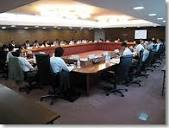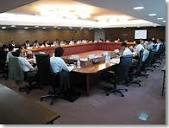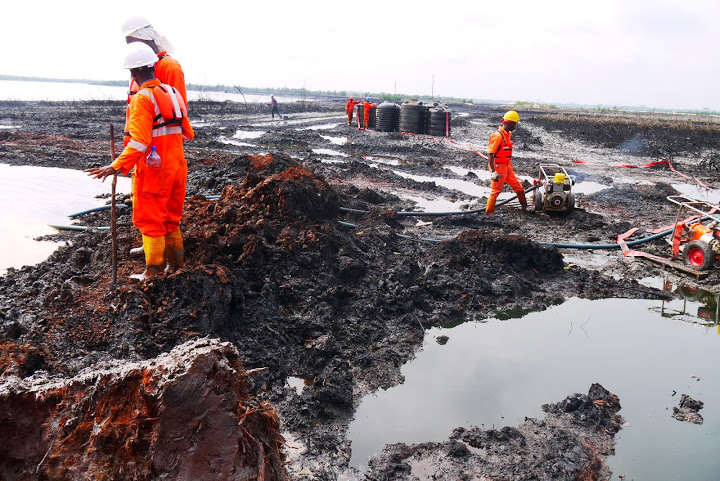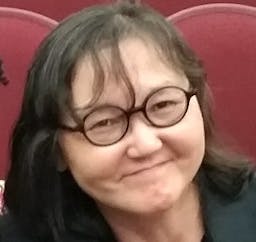Dialogue with the Ministry of Foreign Affairs on 2013 Dec 9th, “Are You Aware of the Government’s Corruption?”
Jan 21, 2015
Story



It would be the day, you may say, of a ‘turning point’ of our NGO, that Support Women And Children In Nigeria (SWACIN) may need to reestablish itself in the U.S. instead of in Japan, if the Ministry of Foreign Affairs in Tokyo rejected to support the clean-up project in Niger Delta, Nigeria.
My voice was raised and vibrated all corner of the conference room through the microphone set before me, “I would like to thank the Ministry of Foreign Affairs for allowing our proposal for discussion, ‘How to support Niger-Delta, Nigeria.’ “
I could not deny my feeling of the heaviness, the responsibilities shouldered for the loyal Nigerian scholars in University of Calabar who have been unpaid for the strike past 6 months, undeniably over-burdened numerous women there, battered, segregated, denied their rights, and roaming around for prostitution, “I feel extremely privileged to represent the Support Women and Children in Nigeria, our NGO. My name is Hideko Nagashima, the founder and Board of Director of the NGO. Our NGO is blessed with members of compassion, intelligence and integrity, including two professors from the University of Calabar, one engineer from Shell Petroleum Company, five Japanese members engaging in real estate, medical, legal, and teaching professions.”
I continued, “We believe that it is difficult to develop the world peace without developing Niger Delta in Nigeria. Niger Delta is the world class producer of oil and gas, and that its stability of the regions affects the world economic stabilities. Because of gas flare and oil pollution, the region is major contributor to the climate change in the global scale and one of Africa’s worst vulnerability. Therefore, the regions are also important country to Japan but according to the Japanese embassy in Nigeria, Niger Delta is ‘dangerous area’ that recommended for evacuation and that there is no support for the NGO operation from Japan…”
Even before this conference, the same questions were repeated over and over in the three preliminary conferences. Here I am directing their attention to how the area was determined as dangerous and what issue was considered dangerous in what situation.
“Please take a look at the reference materials in your hands, issued by the University of Calabar, IPPA. It says that Niger Delta is safe because of:
• Foreign investors are flocking in the region.
• Cross River state government has officially declared regions as safe.
• FIFA (World’s football governing organization) ruled that the Cross River State and its regions as safe.
The Japanese embassy responded to the above questions that (1) The Japanese embassy has not grasp the safety declaration. It has no telephone number to the Commissioner of Police for they do not publicize their telephone number. (2) The safety assurance made by Nigerian government or FIFA have nothing to do with the decision made by Japanese embassy because the decision is made from different stand point of views. “
Now I raised the question again, “if the embassy does not contact with the police, neither exchange dialogue nor interact with the local indigenes, what can they accurately grasp the safety in the regions? “
Now it was the time that the Ministry answered the question, “We have responsibility to protect the Japanese nationals and that we have not confirmed the safety based on the safety declaration made by the Nigerian embassy. When we are sending Japanese nationals, we need more than the safety declaration.”
So I decided to explain how the people in the regions were kind to my daughter and myself. In my case, I visited Nigeria as a partner to an enterprise; therefore, I was more advantaged in terms of mixing the indigenes in the local regions. Now I have a network of people who is backing me up whenever whatever help is necessary. In fact, when I needed to check on the background of the persons I get to know, all I needed was to call my friends in Nigeria and ask them to see if all what they said was true. However, sending the Japanese nationals is not the issue. According to the International Support Policy produced by the Ministry of Foreign Affairs, we found that the “The Japanese government may drop restrictions on the regions where enlisted as "high security risk exists " on the ground that its "necessity to support in view of the importance when it is not absolutely necessarily that the Japanese aid officials to be present on the site if the project is executed by or in collaboration with local agencies, universities and institutes.” We do not necessarily require sending the Japanese nationals. The University of Calabar is requesting equipment. Obviously the Japanese products are taken as high value for its effectiveness and capability.
To my response, the Ministry added. “It is the premise that technical assistance should be proposed by the Nigerian government."
So I told her about a distinguished Senate Committee Chairman of the Federal Republic of Nigeria on women and youth problem from Niger Delta, Helen Esuene, a former Ministry of Environment who were appointed by President Obasanjo from 2006 to 2009 is taking the initiative backing us up. Then the Ministry tried to finish me off. She did it with her emotionless tone, “Not ‘former’ Ministry, must propose the project to the Japanese government. How would they want to develop the project? First of all, the Nigerian government should contact the JICA in Nigeria and they do readjust the project and set up Planning Committee.”
It was the last chance that I could ever get affirmative answer from the Ministry. “I cannot go home without getting a positive response from the Ministry that we should work in the Niger Delta—or how can I face my associates and members!” My thoughts ran through me for a second before I opened my mouth and said, “You made it clear that the government must readjust the project, but are you aware of the Nigerian government’s corruption? The resource provided by the Millennium Development Goals or their own oil revenue does not reach the poor populations in the regions. (I could see the uneasy movement among the members of the Ministry) I request the Japanese government to demand the Nigerian government to strictly cooperate on developing transparent, effective and correct way of monitoring the value of money. This all has to be done by monitoring the expenditure to invest for the welfare of people and cutting any cost outside the welfare of the people.”
At this point I was stopped by the coordinator and was told my statement will be omitted from the record because answering to this question will address the political issue. So I was invited to meet with the Ministry privately to discuss the matter. When I met with the Ministry privately, she indicated that she understood my viewpoints (She asked me not to disclose the rest of the discussion.)
After I returned home, I received email from Ministry of Foreign Affairs expressing their interest to know more about our project and asking me whether we are flexible to change the project suitable to the requirement of the Ministry of Foreign Affairs.
Thus, we will continue our NGO operation in Japan as well as establishing in New York, U.S.A.




